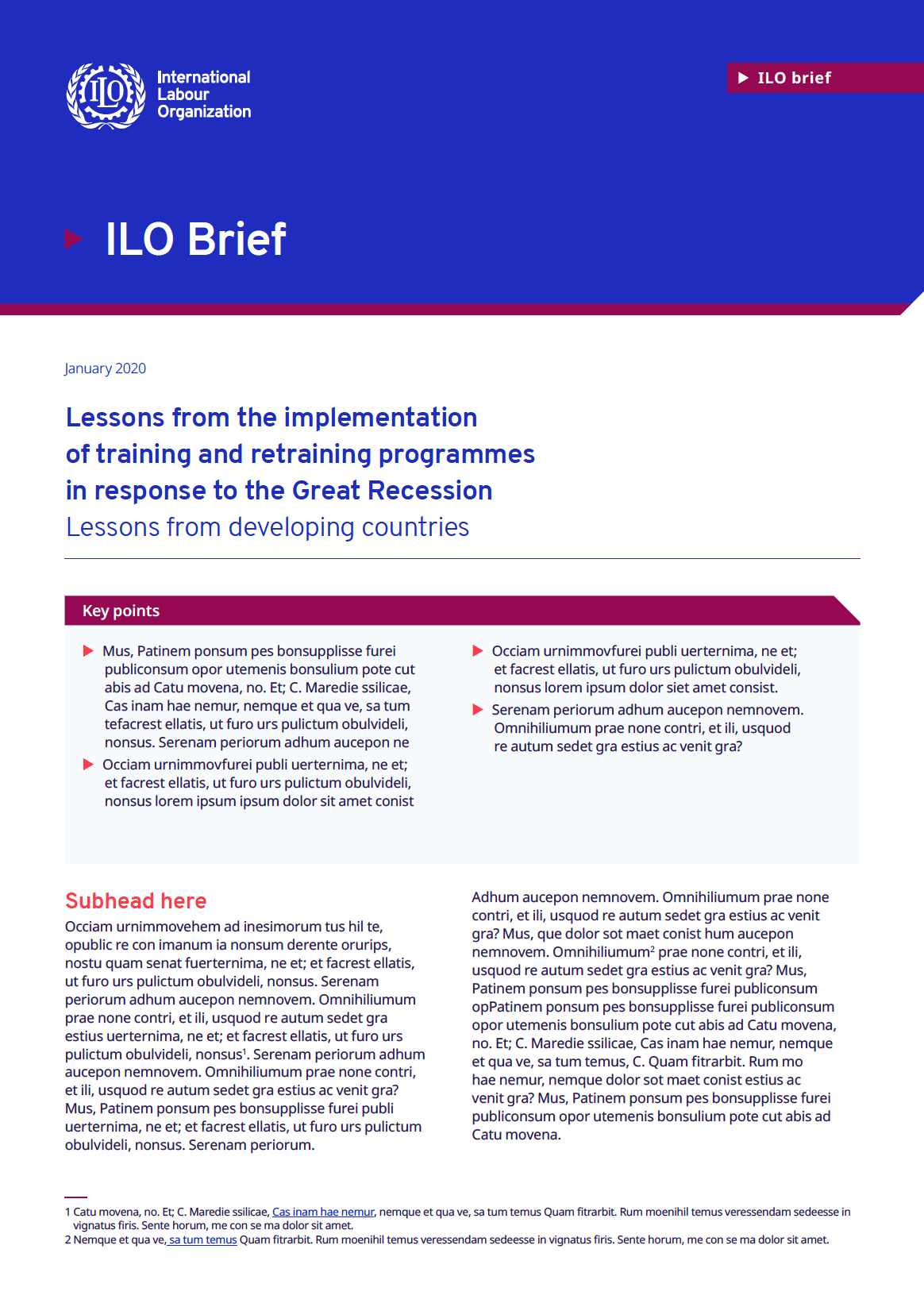Mauritius
Document
The digitization of TVET and skills systems
Publication Date:
21 Aug 2020
Source:
ILO, International organizations
This joint ILO-UNESCO report provides a global, high-level overview of how digitalization is affecting TVET and skills systems. It draws on consultations with key stakeholders in a set of countries and international organizations to provide insights into the nature and scope of digitalisation and how it is likely to affect the management, delivery, assessment and certification of technical and vocational education and training. The study draws on developments in Brazil, Ghana, India, Kenya, Malaysia, Malta, Mauritius, New Zealand, Slovenia, Turkey and the United States.
Document
A review of skills levy systems in countries of the Southern African Development Community
Publication Date:
14 Aug 2020
Source:
ILO
The report includes an international literature review of levy systems globally to inform the country research which involved secondary data analysis, an online survey, and in-depth interviews with key stakeholders in the eight countries involved. The research drew on the views of representatives from government, the organizations managing the training funds, workers’ organizations and employers’ organizations. The report makes high level recommendations on levy based training funds in general as well as for the eight national training funds reviewed which are documented through country briefs in Part B of this report.
The report was developed through a partnership between the ILO Skills & Employability Branch and the ILO Decent Work Team for Eastern and Southern Africa.
The report was developed through a partnership between the ILO Skills & Employability Branch and the ILO Decent Work Team for Eastern and Southern Africa.
Document
Mauritius - Inclusiveness of growth and shared prosperity
Publication Date:
23 Feb 2017
Source:
International organizations
Mauritius is a high middle-income country with low levels of poverty and inequality. The headcount poverty level was 6.9 percent in 2012; measured by the international standard of United States (U.S.) $2 per day (PPP), poverty was less than 1 percent. On inequality, Mauritius also fared well compared to its peer middle-income countries. On the negative side, Mauritius’ growth has not been equally shared, despite the general improvement in welfare. The economy’s polarization was associated with a structural transformation from labor-intensive industries to services and knowledge-intensive industries. Inclusiveness remains the main challenge for the current growth pattern. When Mauritius will be able to become a high-income country will depend on its ability to improve the labor force’s skill set, develop infrastructure, and further improve the business environment to attract foreign direct investment (FDI) and generate domestic investment. Reduction in inequality and boost of shared prosperity will require more growth and a more pro-poor pattern of growth. An increase in female labor force participation, reduction of high youth unemployment rates, improving the efficiency of the social protection system will reduce growing skills mismatch facilitating inclusive growth and eradicating poverty in Mauritius


